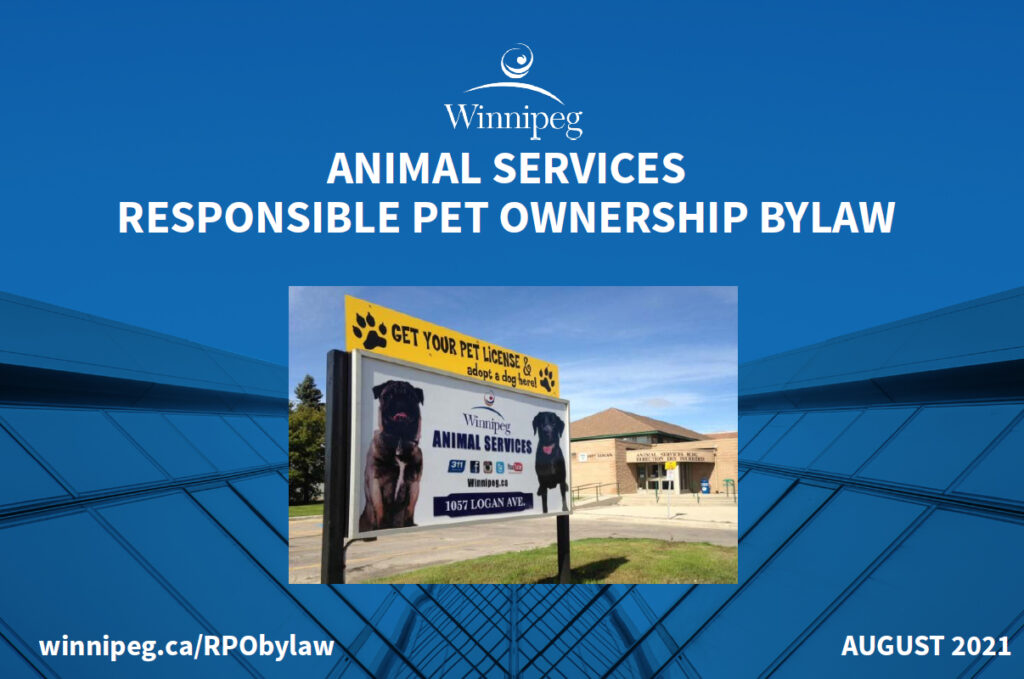
Winnipeg is the largest city in the Canadian province of Manitoba, with a population of approximately 0.75 million people (749,534 per the UN in 2017). It is also home to at least 25 pet and aquarium shops, both chain stores and independent pet retailers.
Winnipeg has announced a sweeping series of proposed rules that, if enacted, would ban the ownership of many types of aquarium life (both fish and invertebrates) along with many other pets under the City’s Responsible Pet Ownership By-Law.
The purpose of the existing by-law is to “regulate the presence of wild and domesticated animals within the City, their activities and the activities of their owners.” The current and active city ordinance, introduced in 2013, makes no mention of fish in any form, but this may be about to change.
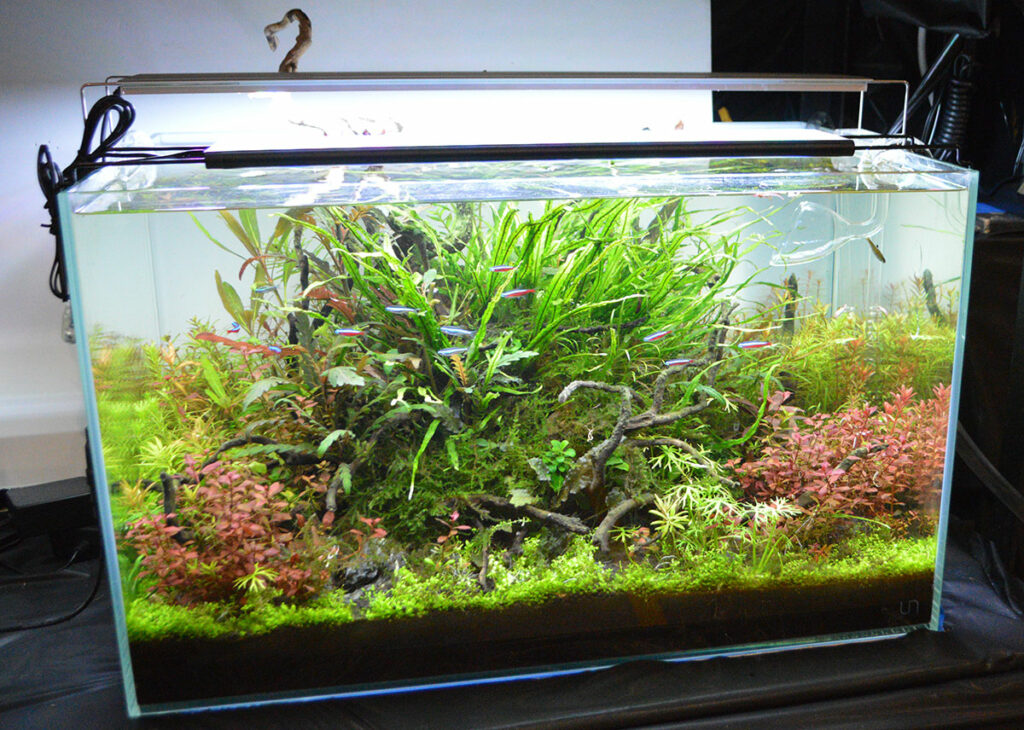
As of August 10th, 2021, the City of Winnipeg is proposing wide-ranging yet vague new rules that will impact anyone involved with aquarium keeping, as well as anyone keeping anything other than dogs and cats. The project is called the Responsible Pet Ownership By-Law Review. The proposal can be downloaded from our server here. Changes could come as early as January 2022.
The proposed bans could put many pet retailers out of business, countless numbers of people out of work, create criminals out of otherwise law-abiding pet owners, potentially outlaw most captive-breeding of exotic animals, and could serve as the blueprint for similar bans elsewhere.
Everything other than cats and dogs appears to fall under the proposed umbrella of “exotic animals”; fish, birds, reptiles, amphibians, small mammals, etc.
The city proposes that these changes are needed by raising the following allegations, which they frame as “issues”:
- Exotic animals are either poached from the wild or born in captivity
- Exotic animals have little quality of life in captivity
- There are currently no limits like dogs and cats, which can lead to hoarding
- Stray exotic animals require law enforcement resources
To paraphrase, Winnipeg’s proposals have the following stated goals:
- Reduce the types and amounts of exotic animals allowed as pets. Limit species kept to “allowable animals” (a whitelist). Previously legal animals can be grandfathered. No traveling shows using limited animals. If rehomed, the animals must leave Winnipeg. Owners of grandfathered animals are prohibited from breeding them.
- Limit each household to five animals per animal ‘family’. This limit is separate to the pre-existing limit set for dogs and cats. For example, one household could own/harbour five snakes, five lizards, and five birds.
The city’s proposed list of “allowable animals” would restrict pet ownership to the following notable “exotics”:
- Allowed small mammals are limited to European Rabbits, Guinea Pigs, Gerbils, Hamsters, Rats, Mice, and rather unexpected inclusions of Common Degu and Bushy-tail Jird
- Allows only 11 species of lizards
- Allows only 3 species of snake (Milk Snake, Common King Snake, Corn Snake)
- Allows birds including 28 species of finches and sparrows, 3 species of doves, along with Cockatiels and Parakeets (Budgies)
- Bans all amphibians, citing the concern of chytrid.
- Bans all invertebrates, except for “Feeder crickets, mealworms, other worms, flies”
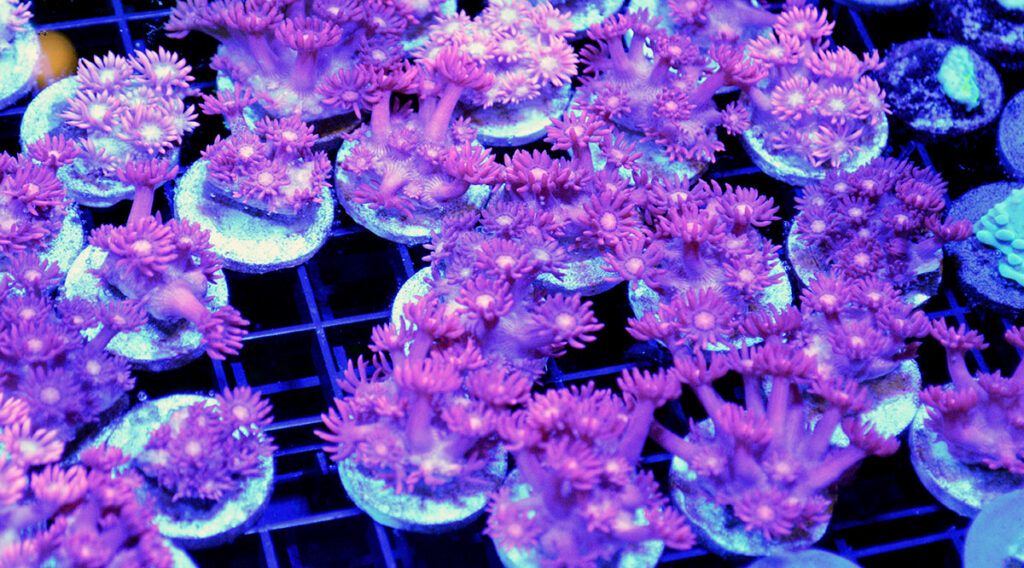
Winnipeg Proposes to Ban Most Aquarium Life
Examining the bans that will impact fish, the rules propose that “commonly-traded, ornamental fishes are allowed,” however, the following ornamental fishes will be prohibited:
- Wild-caught saltwater fish
- Wild-caught freshwater fish
- Venomous fish or other fish that pose a medically significant risk to human health or safety
- Fish species that are known to be wide-ranging and/or migratory and that require very large “species” [aquariums/tanks?] in captivity
- Large fish that reach an adult length of 14 inches or more, whether or not a specific fish has reached the length [Note: Goldfish and Koi are exempted from this rule]
- All aquatic invertebrates are banned
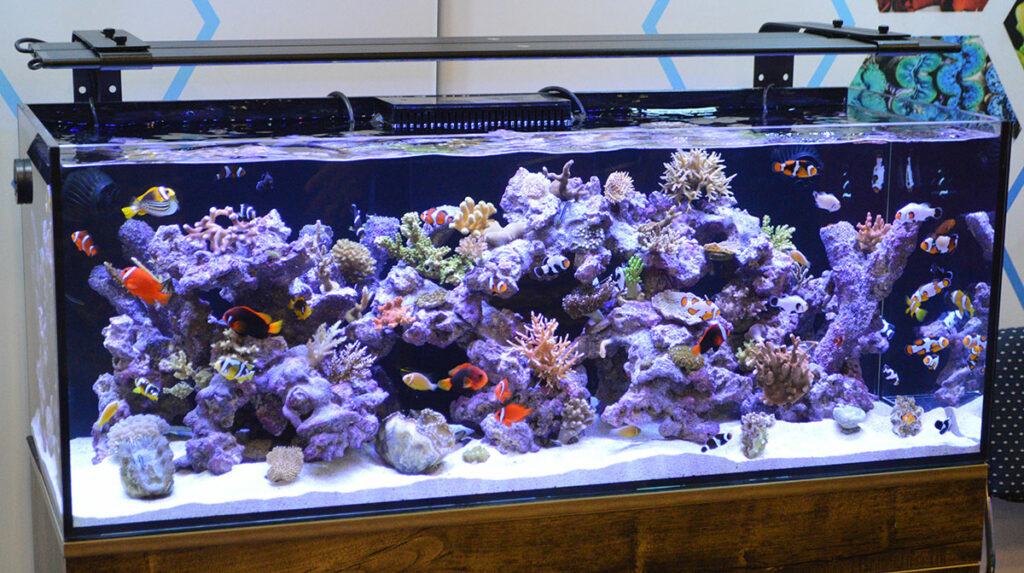
In effect, most “commonly-traded ornamental fishes” will be banned by these rules. Consider the following:
- Wild-caught saltwater fish still make up the vast majority of all specimens and species in the aquarium trade. Additionally, we are not aware of any commercial marine ornamental aquaculture facilities in Canada, so this likely limits the availability of marine aquarium fish to imported, captive-propagated fishes only.
- Wild-caught freshwater fish remain a vital part of the the aquarium trade, and while limited, documented-sustainable collection programs such as Project Piaba are actually beneficial to the area where these fish originate. Once again, Canada has no commercial scale ornamental freshwater fish farming that we are aware of, leaving only imports and home-grown, hobbyist-sourced fish. While Winnipeg is just one Canadian city, there is a thriving freshwater fish community, with many notable aquarists calling the region home.
- Only allowing for captive-bred fish, the question must be raised: How is the city of Winnipeg going to police this? How is the city going to certify that a fish is captive-bred vs. wild-caught?
- The very vague exclusions of “venomous fish” could be construed to ban anything from saltwater lionfishes to the rather innocuous Corydoras catfishes, which ironically possess rather benign but venomous spines. It’s impossible to know what constitutes other species that are “medically significant”…will pufferfishes be banned as pets because of their tetrodotoxin, which is only medically significant if someone eats the fish?
- The proposal to ban “wide-ranging and/or migratory” species is equally vague. For example, one could argue that the freshwater gobies of the genus Rhinogobius and their relatives, with their diadromous lifestyles, would fall under this ban, even if they were in the trade from some future captive-breeding operation.
- The ban on large fish prohibits any fish that has an adult length of 14 inches (35.5 cm). While a rule prohibiting “monster fishes” can make some sense on the surface, a few quick examples show the error in thinking.
- While many marine angelfishes would be banned because they are not captive-bred, there are some like the Maculosus or Map Angelfish, Pomacanthus maculosus, that are aquacultured. The species can reach a maximum adult size of 20 inches (50 cm), although this is more the exception than the rule. Despite being a hardy aquarium captive, and available as captive-bred, it would be banned from ownership at any size because of its potential size.
- Consider the bichirs, where many are now captive-bred. They would still be prohibited from ownership, given that the most common species reach adult lengths of 18 to 24 inches (46 to 61 cm).
- No reasons are given for this arbitrary “potential maximum size” limit, nor is consideration given to the fact that aquarists can and do successfully keep these larger fishes as a matter of routine, and aquariums and indoor ponds of several hundreds or thousands of gallons are all within the reach of a private home aquarist willing to make the investment.
- The ban on all aquatic invertebrates is highly ill-informed. The proposal states, “Scientific research regarding the husbandry and welfare needs of most invertebrates, both terrestrial and aquatic, is lacking. As well significant conservation concerns are associated with a number of invertebrates, such as certain tarantula species, that are extracted from the wild for pet trade.” The trade in wild and maricultured corals, for example, is legitimate and legal, and in many cases well regulated through CITES. To suggest that the “husbandry and welfare needs” of corals are not understood demonstrates a profound lack of basic research behind these proposals.
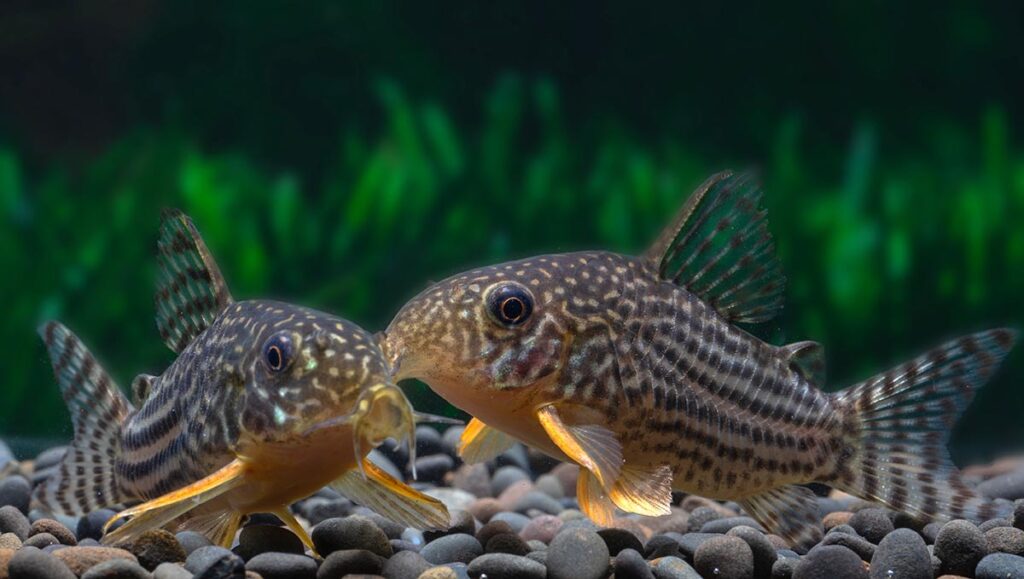
We must also address the city’s larger, blanket allegations surrounding exotic animals, as enumerated at the start of the article.
- The allegation precludes (overlooks or omits) the reality that there is a legitimate, regulated trade in wild-collected animals for the pet trade, including sustainable-collection programs that may actually help preserve wild places. The implication is that “wild-harvest” can only be bad.
- The allegation for “quality of life” is arbitrary and vague, and at best debatable, but at worse, dangerously anthropomorphizes to make an emotional argument with no basis in scientific fact or understanding.
- The allegation implies and passes judgement that there is a problem with a reptile breeder or aquarist who may have more than just a few individual animals, making the false equivalency to large domesticated pets like dogs or cats.
- The city should disclose exactly the number of incidents of stray exotic animals…perhaps saltwater fish…and the burden they have placed on law enforcement.
- Whitelists are inherently overly restrictive and inflexible, and when combined with incredibly vague, open-ended bans, the system crumbles. It relies heavily on intention, and leaves a whole host of open ended questions that ultimately may fall to discretionary if not arbitrary enforcement. In other cases, it creates conflict within the rule itself. When it comes to something like wild-caught aquarium fish, which would be “grandfathered” in, the rule then prohibits breeding them. This eliminates one of the possible future sources for “captive-bred” fishes, which are permissible. It eliminates the ability for Winnipeg residents to even try to create a captive-bred source for fish within their city, using the existing, legally owned fish they already have.
- Placing possessions limits on exotics creates a false equivalency between a small reptile and a dog or cat. These limits also outlaw the breeding of most any exotic animals in the city of Winnipeg, whether intentional or not. It is notable that fish are not called out, another area that creates a vague, open-ended rule. We’re hesitant to even point out that fish aren’t listed, for concerns that such an oversight could be “remedied” by lawmakers.
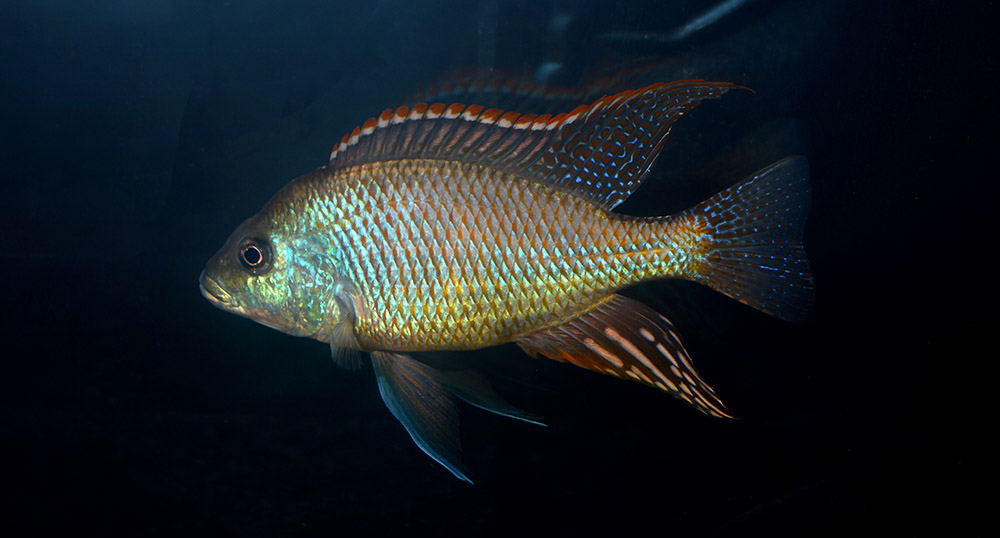
Pet Keepers Fire Back
Proposals to ban many commonly-kept pets are being met with strong opposition.
PIJAC issued an official statement on Friday, August 20th, in support of widely agreeable revisions to dog ownership laws, but chastising pretty much everything else.
“The Pet Industry Joint Advisory Council stands with PIJAC Canada in supporting the proposed changes to the Winnipeg, Manitoba, Responsible Pet Ownership bylaws that lift dog breed restrictions, while opposing those that would ban many commonly-owned specialty pets including certain bird breeds, small mammals, reptiles and amphibians. This misguided action would only force prospective pet owners to the unscrupulous and illegal black market, endangering pets and owners alike by eliminating highly regulated and legal sources for these companion animals. We urge Winnipeg’s lawmakers to instead focus on enhancing responsible pet ownership educational programs and on protecting both animals and humans by stopping the illegal pet trade.”
Quentin Harms, a local reef aquarist and the entrepreneur behind Northern Aquariums, has grave concerns not only for Winnipeg pet owners but all within the region. “With Winnipeg being the hub for the airlines, is that even going to be possible to import [prohibited animals] within the city limits and then transport them to outside the limits?
“I’m concerned that these bans would devastate the hobby’s growth. I’m scared the hobby will entirely die. The [trade in] wild-caught fish, in my opinion, is part of a healthy ecosystem within reasonable numbers.”
Kyle Neufeld, Horticultural Award Program Chair for The Aquarium Society of Winnipeg, noted in public comments that despite the City’s suggestion that they had contacted stakeholders when drafting these proposed new rules, the Aquarium Society of Winnipeg had not been contacted by the City. Neufeld shared several concerns over the proposed new rules. “I am quite disturbed by the severity of these proposed bylaws. Currently, I have not seen any repetitive, or major animal welfare issues regarding specialty pets, or as the city refers to them—’exotic animals’—being brought forward in the local media. There was one case of an escaped corn snake, which would fall into the allowable species list of the proposed bylaws anyways.
“This pales in comparison to the sheer volume of escaped and feral cats in the city. The lack of supporting evidence to justify the need for such extreme changes to the bylaw, or to support that these changes are a tested effective approach to solve such a matter are also extremely concerning.
“The resulting financial impact local pet-related businesses will feel won’t be easy. There are whole departments at current large Canadian-based pet supply stores in Winnipeg that will likely have to lay off employees and downsize the sales of care supplies for specialty pets such as fish and reptiles. And all that without any evidence to support there will be any measurable benefit to animal welfare. I find it all quite concerning. Especially that somebody in the position to propose a bylaw change would not have these considerations in mind. I can only hope that City councilors can realize what I have after reviewing the proposed bylaws, and they disregard the unprecedented proposed bylaws regarding an ‘allowable animals list’, and only go ahead with the new changes removing breed-specific bans for canines”
Chris Biggs, a founding member of the Aquarium Society of Winnipeg, the Canadian Cichlid Association, as well as the Dead Fish Order, commented that “The focus of this proposal is geared towards the World Animal Protection group’s agendas. A lot of the wording comes directly from their mandates. The pandemic has somewhat created a perfect storm for animal rights activists to push their agenda. Some, to their very core, believe that no one should have the right to own a living creature of any kind. So if we don’t address each and every one of these types of proposals as they come up, eventually everything will be gone. Not just the exotics but eventually dogs and cats, then livestock.
“I am all for regulations that make sense. I think we can mostly agree that an average homeowner should perhaps [not be allowed to keep] a tiger, a chimpanzee, an alligator … but where do we draw the line? Most peculiar is that both koi and goldfish are always excluded [in these types of proposals], yet where is this proposal brought forth? Winnipeg. These two species would, without question, be the absolute worst two choices of standard aquarium fish [should they be released into the wild]. I’m not saying they should be banned, but rather that they are true cold-water species that can readily adapt to life in our native waterways. They destroy habitats and are a large vector for disease.
“But let’s leave [goldfish and koi] alone and go after that the tropical fish industry? We already have several layers of legislation in place, both federal and provincial. Federally, White Cloud Mountain minnows are illegal! Yes, seriously. The reasoning is a threat of them becoming established [in Canadian waters].”
Biggs also highlighted the preposterous reality of enforcing the City’s fish-related proposals. “No bylaw officer will be able to tell wild-caught fish from domestic or farm-raised fish.”
Pet Retailers Facing Uncertainty
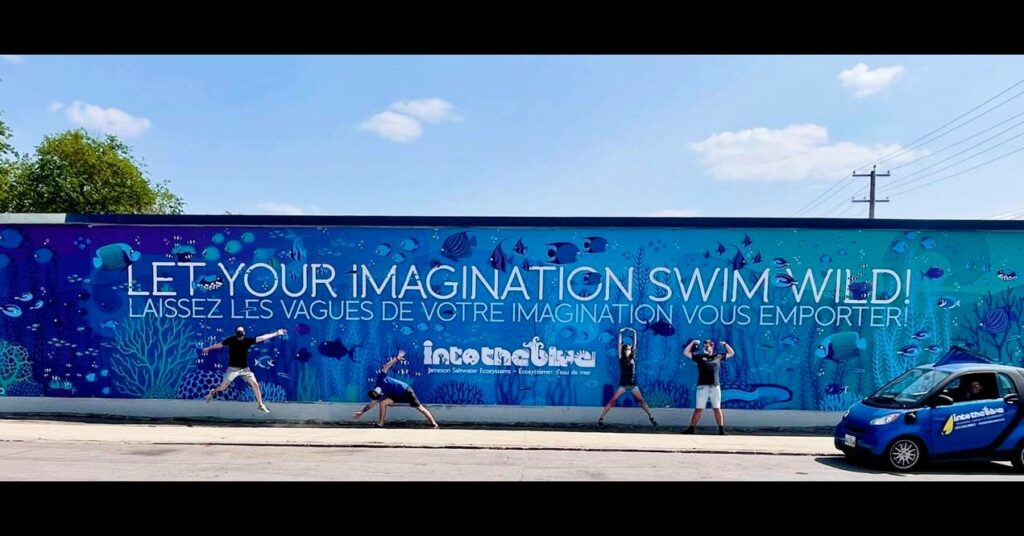
Lyndon Jameson and his twin brother Derrick Jameson are the co-owners of Winnipeg marine aquarium retailer Into The Blue. The company is now in its 6th year of business, with 9 employees. Prior to opening the store, Lyndon and Derrick were both trained biologists with a focus on ecology and worked for a fisheries consultant company before they ventured into business to open the store.
Speaking with Lyndon, it’s clear that they would be forced to close their business, and leave 11 people looking for new lines of work, should the current proposals come into effect. Lyndon Jameson shared a lengthy rebuttal of the City’s proposals, which Into The Blue vows to fight.
“Banning a variety of animals for the fear of depletion of wild populations is not the best practice. [It will likely not] stop the animals from being removed from the wild. It would just likely lead to higher proportions being taken without proper monitoring/control and concern for sustainability. Our business prides itself in ensuring that any aquatic species that are not captive-bred or aqua-cultured in captivity are collected from the wild with sustainable practices.
“Instead of banning wild-collected animals, the City should be ensuring that more businesses adhere to sustainable harvest practices and procure captive bred and/or aqua-cultured individuals when available. This would be a far better way to go about ensuring that depletion of wild populations does not occur.
“Banning a variety of animals for fear of improper housing is also not the correct way to address the problem. The vast majority of exotic pet owners do a ton of research into the proper care recommendations for their specific animal (typically prior to purchase as well) in order to ensure they are meeting and more likely exceeding the standards of care (i.e. ensuring they are meeting the 5 freedoms and typically exceeding the minimum cage size requirements by providing as much room as possible in their home for the animal to thrive).
“We can continue to further educate owners at the store and city level, and in addition, stores can ensure that every animal leaving their store is going to an aquarium set-up that will meet their needs by asking questions.
- What size tank do you have?
- How long has your tank been running?
- What other fish are already in your tank?
- How many fish do you have?
- What kind of lighting does your tank have?
- What kind of filtration system do you have?”
Jameson, as a retailer, feels that the City should “Ban the Bad Owner” instead of implementing any sort of blanket bans. He points to the highly conflicting situation, equating these blanket bans on a wide range of pets is no different than the blanket breed bans for dogs, which the city is currently considering repealing in this very same review process. “The ‘Dog Breed Specific Legislation’ By-Law changes that are being reviewed have taken the onus off the breed and instead put it on individual dog behavior (repeated problematic behaviors) and the owner (repeatedly having a “bad” dog).”

Into the Blue offered, and would welcome, further City involvement if there was truly a need. Jameson’s counter-proposal invites government oversight. “All stores who sell exotic animals could be required to get an animal health inspection and facility inspection similar to the animal inspections that already occur at zoos, university animal holding facilities, and wildlife rehabilitation centres. Therefore, stores will have well-thought-out SOP’s to follow and adhere to in regards to animal care, and can maintain detailed care records, to allow for review of SOPs and adjust as needed, and as animal care standards evolve.” Jameson even proposes the idea of “Online Modules for Certification”, which could be used for prospective pet owners, shop employees, as well as for the training of inspectors who could, in Jameson’s proposals, include “secret shoppers.”
What Does Winnipeg Say?
It’s worth noting that many of Jameson’s proposals have parallels in other cities, states, and countries. Whether any of these is needed in the first place, is a question the City and its residents must wrangle with.
We reached out to the City of Winnipeg to ask several questions, seeking background on how and why these proposed rules were developed, but the City has not responded at this time.
What’s Next?
From the Review Project’s Website:
The City is reaching out to stakeholder organizations to get feedback on the proposed updates to the by-law. The objectives are to:
- Inform stakeholders about current pet ownership issues
- Explain the need to update the by-law
- Share proposed ideas
- Gather feedback from stakeholders
Stakeholder feedback will be used to refine the proposed ideas, which will be presented to Council in winter 2021/22.
Anyone else who has questions or comments can get in touch through email RPObylaw@winnipeg.ca or Winnipeg residents can also contact the City by phone at 311.
What Can You Do?
Based on available documentation for the timeline of this process, the month of August was made available for “Stakeholder Engagement.” Stakeholders (that means you, pet owners, and Winnipeg citizens) are invited to submit their comments before September 7th via email to RPObylaw@winnipeg.ca. The months of September and October allocated to “Refine Bylaw Recommendations.” “Council Review” is scheduled for January 2022, and changes are to be finalized and enforced starting that month as well.
If you’re a Winnipeg resident and you’re reading this, there is a good chance this rule-making will impact you if nothing is changed. It is unclear whether the City of Winnipeg even considers the residents who own exotic pets as “stakeholders”, but it is abundantly clear that you have a lot to lose.
Aquarists in the region are facing an uphill battle, given that the impacts of COVID-19 have all but shut down the organized aquarium hobby in many parts of the world. If you are not already involved with the organized aquarium hobby, we suggest trying to connect with the Aquarium Society of Winnipeg (Website, Facebook), and it would make sense to reach out to the Canadian Association of Aquarium Clubs on a more national level. Working together to formulate a unified response based on science and data may be the best way to protect the hobby we all participate in.
How Did Winnipeg’s Aquarists Wind Up In the Crosshairs?
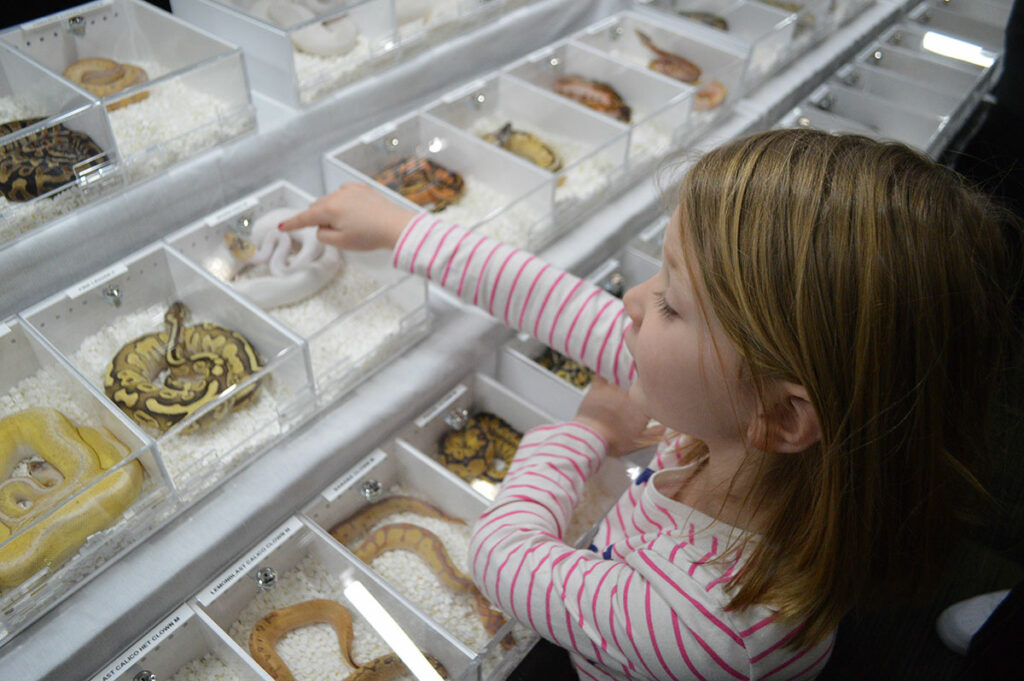
You could stop reading here, but for those who want to dive deeper, investigating this story led us down a path that potentially exposes the greater agenda behind the City’s proposals, and the City itself is possibly largely unaware. This is hardly the first time that anti-pet legislation or rules have been proposed. In fact, it happens rather routinely in the United States, which is one of the reasons USARK exists.
Read more about the suspected origins of the proposed ban behind Ball Pythons in Winnipeg, a cautionary tale demonstrating how misinformation drives efforts to ban pet ownership of all types.
Update, 9/2/21 – the website WinnipegSpecialtyPets.ca was brought to our attention as another effort to oppose the City’s proposals.
Also, the Manitoba Canary & Finch Club (MCFC) has launched efforts, including a Change.org petition, in opposition to the proposed bans.








Trackbacks/Pingbacks